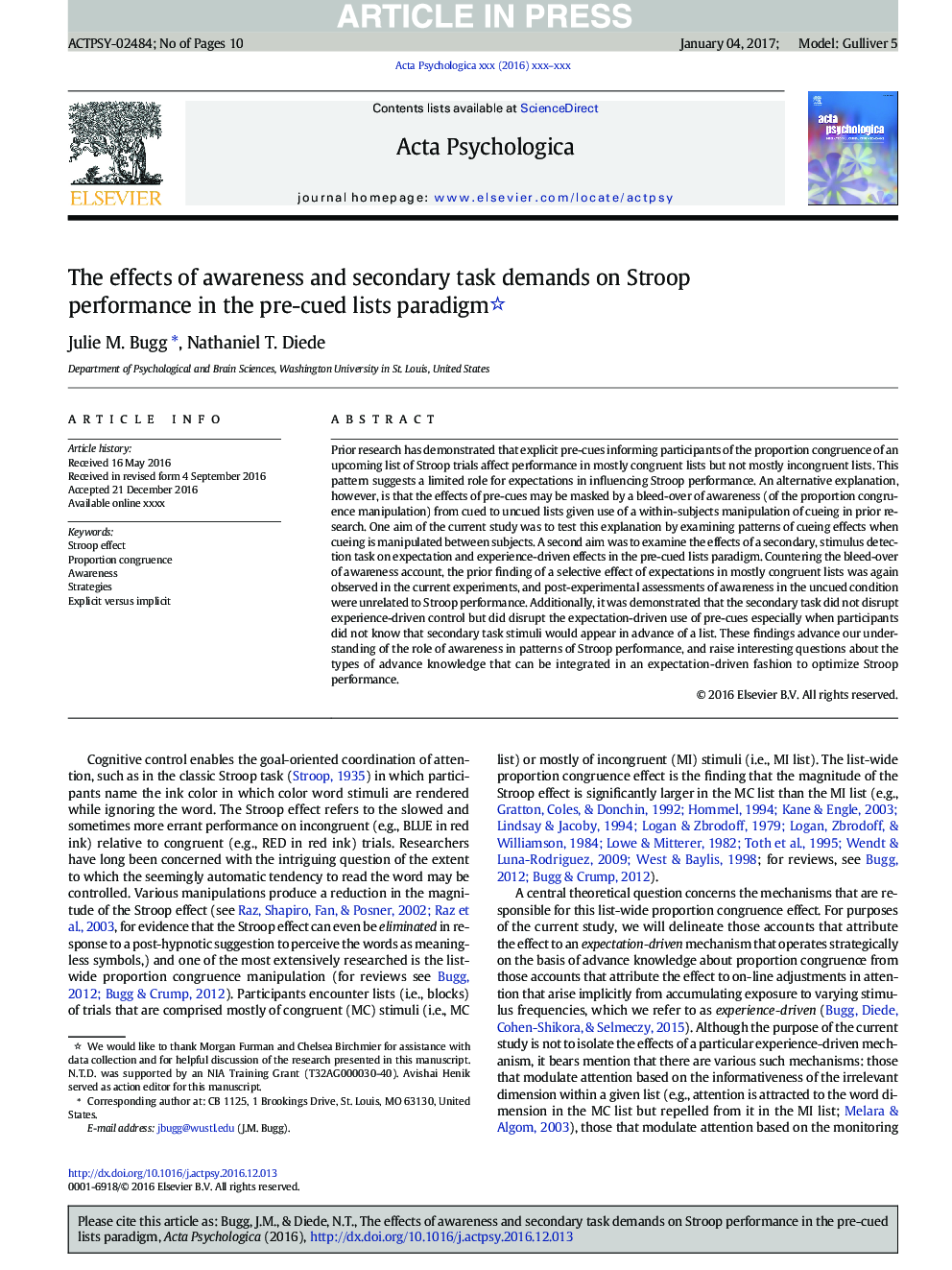| Article ID | Journal | Published Year | Pages | File Type |
|---|---|---|---|---|
| 10226692 | Acta Psychologica | 2018 | 10 Pages |
Abstract
Prior research has demonstrated that explicit pre-cues informing participants of the proportion congruence of an upcoming list of Stroop trials affect performance in mostly congruent lists but not mostly incongruent lists. This pattern suggests a limited role for expectations in influencing Stroop performance. An alternative explanation, however, is that the effects of pre-cues may be masked by a bleed-over of awareness (of the proportion congruence manipulation) from cued to uncued lists given use of a within-subjects manipulation of cueing in prior research. One aim of the current study was to test this explanation by examining patterns of cueing effects when cueing is manipulated between subjects. A second aim was to examine the effects of a secondary, stimulus detection task on expectation and experience-driven effects in the pre-cued lists paradigm. Countering the bleed-over of awareness account, the prior finding of a selective effect of expectations in mostly congruent lists was again observed in the current experiments, and post-experimental assessments of awareness in the uncued condition were unrelated to Stroop performance. Additionally, it was demonstrated that the secondary task did not disrupt experience-driven control but did disrupt the expectation-driven use of pre-cues especially when participants did not know that secondary task stimuli would appear in advance of a list. These findings advance our understanding of the role of awareness in patterns of Stroop performance, and raise interesting questions about the types of advance knowledge that can be integrated in an expectation-driven fashion to optimize Stroop performance.
Keywords
Related Topics
Life Sciences
Neuroscience
Cognitive Neuroscience
Authors
Julie M. Bugg, Nathaniel T. Diede,
